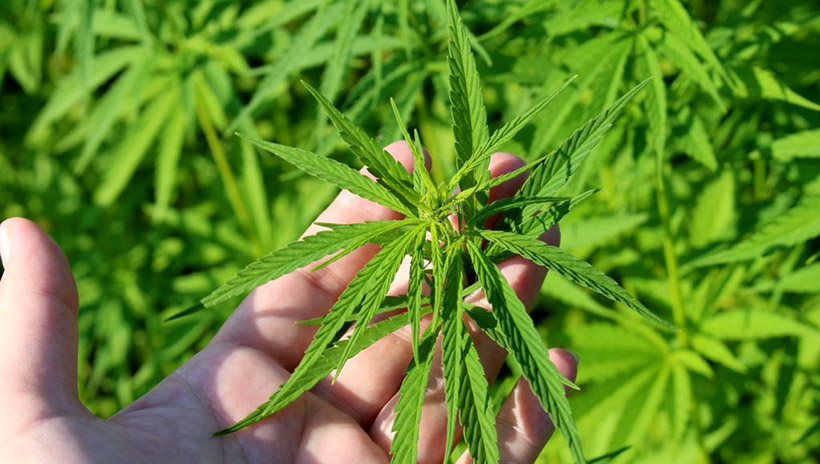Publisher's note: This post appears here courtesy of the Carolina Journal, and written by Brooke Conrad.
Justin Hamilton's company farm last year lost an entire greenhouse of hemp - somewhere between $25,000 and $35,000 - because his crop violated the state's THC threshold by 0.1%.
The crops of at least 38 other North Carolina hemp farmers were destroyed over the past two years after farmers inadvertently overstepped the 0.3% THC standard, records from the N.C. Department of Agriculture's Plant Industry Division show. In many cases, crops exceeded the limit by mere tenths of a percent. Many in the hemp industry say if the state raised the standard to at least 1% THC, farmers could more easily comply, while also getting more bang for their buck.
Hemp is defined as any cannabis containing 0.3% or less THC. Anything above that level is considered marijuana. It's impossible for law enforcement to distinguish between smokable hemp and marijuana by sight or smell, which led to a controversy over banning smokable hemp in the 2019 farm bill. After the General Assembly compromised on a June 2020 ban date, the farm bill stalled yet again because of an unrelated provision. It won't be taken up until January at the earliest.
Raising the THC standard might solve part of the problem. Even 1% THC, when balanced by a typical level of 15% CBD, isn't nearly enough to produce a chemical high at a usual dose of between 5 mg and 50 mg CBD, says researcher Amanda Vickers with the US Botanical Safety Lab, a nonprofit that provides testing services for natural product industries. A person smoking 1% THC may feel more comfortable and relaxed, she said, but that's mainly due to the CBD and other cannabinoids in the product. By comparison, the average marijuana sample today contains between
18% and 25% THC, with some extreme samples reaching 40%.
Before the U.S. legalized hemp, 0.3% was the global standard, said Hamilton, CEO of one of North Carolina's first hemp companies, Hempleton Investment Group. In France - and other countries where hemp was legal - the average THC in the majority of existing hemp strains didn't exceed 0.3%. When the U.S. legalized hemp using the same 0.3% standard, they were at a disadvantage, because domestic hemp strains have higher THC.
North Carolina uses a strain developed in Colorado with compliant THC and a marketable amount of CBD. If North Carolina raised the standard to 1%, Hamilton says, farmers could experiment with a wider range of genetics and grow crops with higher CBD.
But even under a 1% standard, farmers probably would push the limits, noted Phil Wilson, who works for the N.C. agriculture department. When hemp has time to mature, it contains not only more THC, but also more CBD and other cannabinoids. The longer farmers wait to harvest, the greater their market advantage.
Even so, Vickers said, when farmers get the OK from the state, a crop's cannabinoid levels - including CBD and THC - sometimes slightly increase by the time the harvest is sold to a dispensary.
"I think if there was agreement on a reasonable, acceptable amount of error, it would make the target a lot more approachable," she said.
Besides, it would be hard to get a prosecutor to take a case involving a minimal trespass, said Detective Alex Posten, who works for Shelby County Sheriff's Office in Tennessee. Posten's office employs a field test to ensure THC compliance.
A defense lawyer could easily point out his client had no intention of committing a crime, and his crop couldn't even produce psychedelic effects, Posten said. The Tennessee detective would rather target distributors of high-THC cannabis than hemp farmers who barely traverse the 0.3% threshold.
"There are officers out there who will write their grandma a ticket, or put somebody in jail for hemp that's a little bit hot," he said.
"We're trying not do bad case law."


























